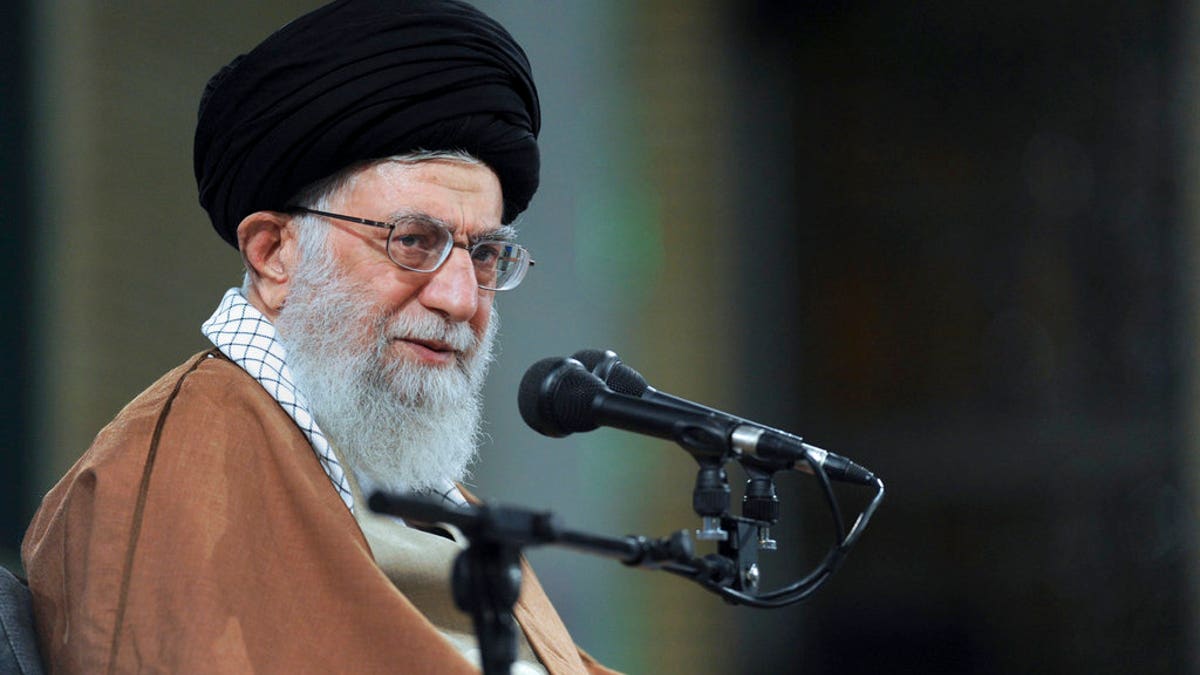The Biden administration announced Friday that it would begin indirect nuclear deal talks with Iran next week, with other world powers acting as intermediaries.
The U.S. plans to meet Tuesday in Vienna, Austria, with representatives from Europe, Russia and China to "identify the issues involved in a mutual return to compliance," a State Department spokesperson told Fox News.
A diplomat familiar with discussions says they’ve managed expectations heading into the meetings, but Iran quickly pushed back that there were no direct talks planned for Iranian and American officials.
The indirect talks are a sign that the Biden administration plans to move in the opposite direction of former President Donald Trump, who withdrew the U.S. from the landmark nuclear deal in 2018 and has long said the agreement with Tehran is one of the worst, "decaying and rotten."

Iran's supreme leader, Ayatollah Ali Khamenei. (Associated Press)
Talks with Iran -- even indirect ones -- would be a major geopolitical step forward for the administration, which has tried to bring the Middle East power to the negotiating table since President Biden took office.
IRAN, CHINA SIGN DEAL TO WARN US AGAINST ISOLATING THEM, PROFESSOR SAYS
"These talks will be structured around working groups that the EU is going to form with the remaining participants in the JCPOA [Joint Comprehensive Plan of Action], including Iran," the State Department spokesperson said.
"We do not anticipate presently that there will be direct talks between the United States and Iran through this process, though the United States remains open to them."
However, Iran has already indicated that it will reject any indirect talks or "step-by-step lifting of sanctions," its state-run Press TV reported on Friday, quoting an unnamed source.
CLICK HERE TO GET THE FOX NEWS APP
"In line with the unchangeable guideline of Iran's [Supreme] Leader, any result of the [nuclear accord commission] which would be based on the idea of a step-by-step removal of the sanctions or indirect negotiations with the U.S. will not be acceptable," the source said, according to Press TV's website.
Iranian Foreign Minister Mohammad Javad Zarif immediately stressed that no meeting was planned between officials from Iran and the U.S.
In a tweet, Zarif said the aim of the Vienna session would be "rapidly finalize sanction-lifting & nuclear measures for choreographed removal of all sanctions, followed by Iran ceasing remedial measures."
Trump faced immediate criticism for his decision to walk away from the deal, which had been brokered in 2015 under then-President Barack Obama. Supporters applauded Trump’s decision as a "strong statement," but media scrutiny claimed that Trump’s decision would "isolate" the U.S.
Fox News' Rich Edson contributed to this report.













































